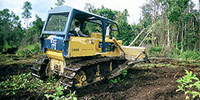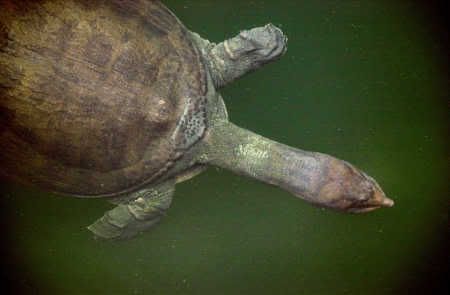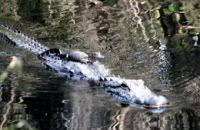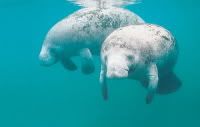
Lennar push to move Dade's development line criticized
By Matthew Haggman
Miami Herald
Days before a group led by home builder Lennar launches an effort to win government approval for a new suburb on Miami-Dade County's western fringe, two of Miami's most prominent developers said the project should be rejected.
What the Everglades needs
Palm Beach Post
Editorial
The latest update on Everglades restoration contained nothing new, which should make the issue a priority for the state's new congressional delegation.
Oil drilling splits presidential field
By Jim Waymer
Florida Today
Whoever wins the White House, Florida's air and water stand to gain more protection than in the past eight years, if the budget allows it, environmental advocates say.
Coconut Creek suburbanites team with neo-hippies to fight Lowe's
By Amy Guthrie
Broward New Times
Brian Sprinkle dismounts from a blue ten-speed with a warm smile on his face.
Fla. panel delays tougher auto emission standards
By Bill Kaczor
Associated Press
Bowing to the auto industry and other business interests, a state panel Wednesday delayed a vote on adopting California's tough standards for car and light truck emissions.
Amendment 4 would give conserved land a tax break
By Melissa Nelson
Associated Press
Gulf County Commissioner Billy Traylor says he is supporting Amendment 4 on Tuesday's ballot because he prefers the tiny fishing villages and pine tree farms of his rural county to the widespread development of South Florida.
FWC to hold workshop in Tampa on freshwater turtle harvests
North Florida Daily News
The Florida Fish and Wildlife Conservation Commission (FWC) will begin hearing input on the harvest of Florida's freshwater turtles.
Plans For "Mahan Massacre" Withdrawn (includes video)
WCTV News Tallahassee
Following a resounding recommendation against approval by The Florida Department of Community Affairs (DCA) the proposed 'Mahan Massacre' development has been withdrawn prior to a final vote scheduled tomorrow before the Leon County Commission.
Leaders gather to support St. Johns cleanup plan
By Deirdre Conner
Florida Times-Union
Gov. Charlie Crist and other major players in the health of the St. Johns River gathered at its banks Monday to promote a sweeping plan to improve its health.
More water than we can use
By Doug Sword
Sarasota Herald-Tribune
During the height of the building boom, fear of a growing water shortage helped push through plans for a $128 million expansion of the region's key source of drinking water.
Turtle protection plan spurs debate in Florida
By Susan Cocking
Miami Herald
William Shockley and his teenage son are fishing for freshwater turtles the same way their family has done it for four generations in south-central Florida: deploying about a mile of nylon line on four sets of buoys holding 1,000 small hooks baited with bits of bacon in the clear, shallow waters of Lake Grassy.
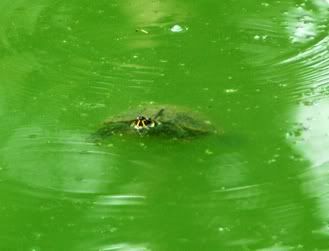

Wildwood Preservation Society is a non-profit 501(c)(4) project of the Advocacy Consortium for the Common Good. Click here to learn more.
"it's all connected"
